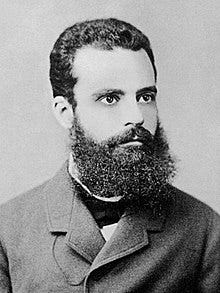Vilfredo Pareto, the Pareto Principle, and climate science...
Why the 80/20 rule may not be well suited to understand climate change.
Who was Vilfredo Pareto?
Vilfredo Pareto (1848-1923) was an Italian engineer, economist, sociologist, and philosopher who made significant contributions to various fields. He was born on July 15, 1848, in Paris, France, but spent most of his life in Italy. Pareto is best known for his work in economics and for developing the concept of the Pareto Principle, which has had a profound influence on diverse disciplines.
One of Pareto's most influential works was his study of wealth distribution, which he began in the late 19th century. He observed that wealth and income were unevenly distributed in society, finding that approximately 80% of the land in Italy was owned by just 20% of the population. This observation led to the formulation of the Pareto Principle, discussed below.
Pareto's ideas had a lasting impact on economics, and he is considered one of the founders of modern microeconomics. His research on the distribution of income and wealth laid the groundwork for later studies in inequality and welfare economics.
Pareto passed away on August 19, 1923, in Geneva, Switzerland, but his ideas and contributions continue to be studied and discussed by academics and practitioners worldwide.
What is the Pareto Principle and some of its current applications?
The Pareto Principle, also known as the 80/20 rule, is a concept that states that roughly 80% of the effects come from 20% of the causes. In 1896, Pareto noticed that approximately 80% of Italy's land was owned by 20% of the population. He also found that this distribution pattern was consistent across different countries and time periods.
It is based on the Pareto Distribution, the probability density function is given by:
Keep reading with a 7-day free trial
Subscribe to Irrational Fear to keep reading this post and get 7 days of free access to the full post archives.




